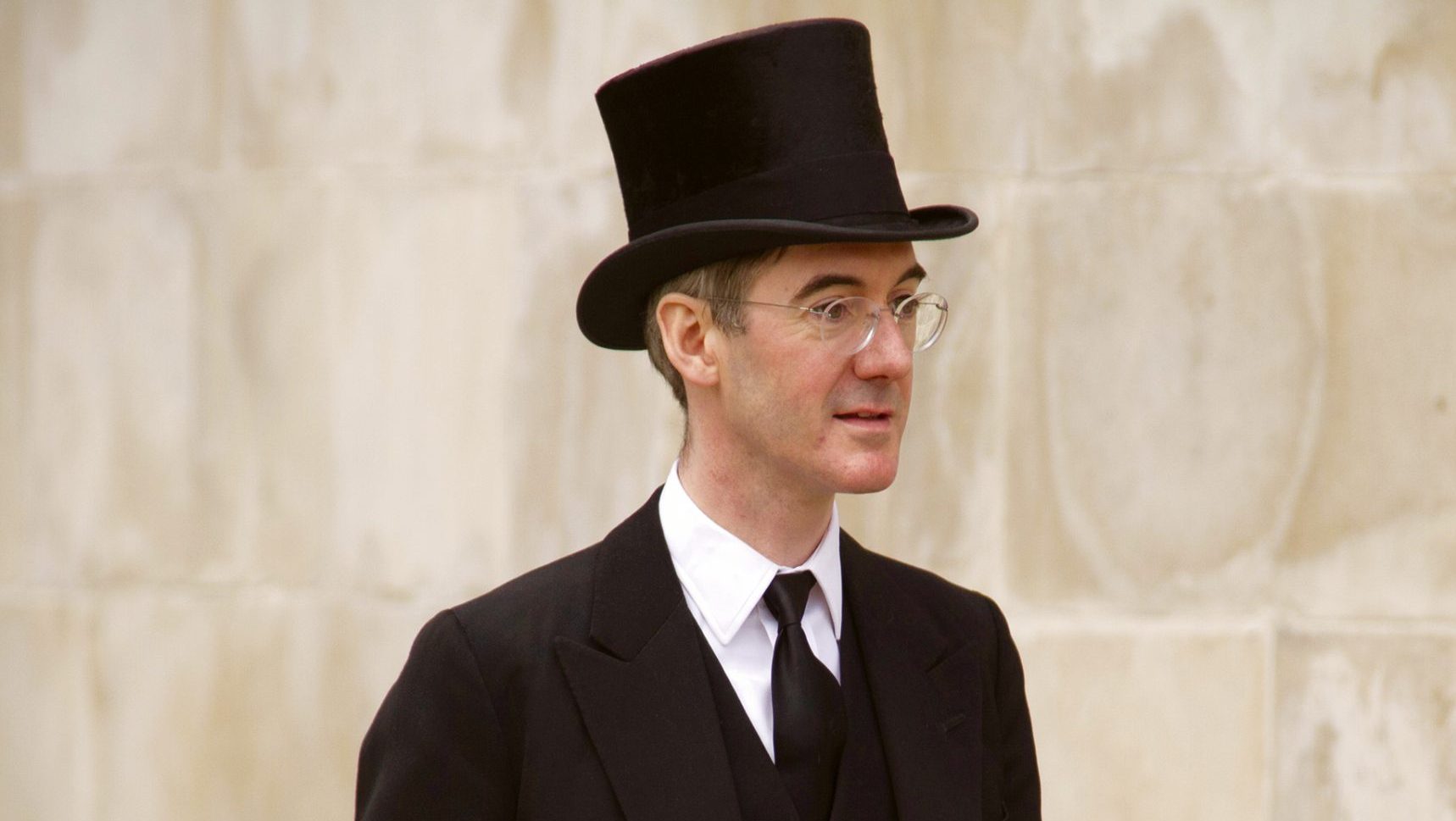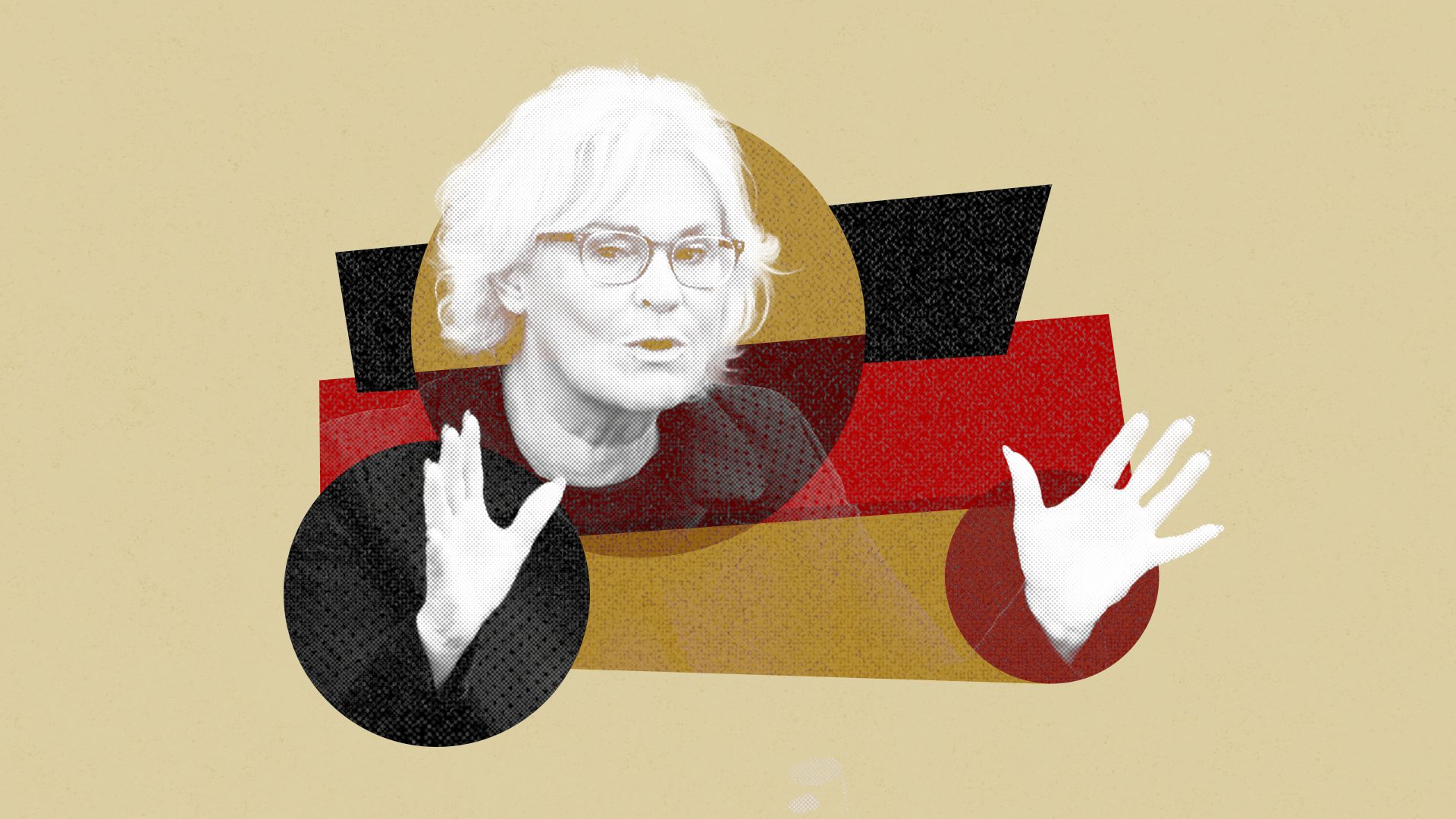Vivienne Westwood, a working-class woman who changed how Britain looked and thought, does not deserve your opprobrium (Multicultural Man, TNE #322). Certainly not for daring to have made a lot of money through her talent and business acumen and therefore dying “in one of the finest early 18th-century houses in south London”.
Shelley Carr
The range, the audacity and the quality of Vivienne Westwood’s work make her a hero of our times. Yes, she said and did some questionable things, but so, I dare say, has Will Self.
Alison Hollyhead
Many thanks to whoever had the wisdom to promote Will Self from his usual back-page slot and allow him the opportunity to produce such a magnificent demolition job on Jacob Rees-Mogg in TNE’s festive bumper edition (“The Fake”, TNE #322).
There are a number of loathsome characters we must thank for the 2016 referendum result that has resulted so spectacularly in so much damage, and Rees-Mogg certainly deserves a large share of responsibility. I hope that in 2023 Will gets many more chances to analyse so brilliantly more of those responsible for bringing this country so low; there is much work for him to do!
Barry Neale
Letchworth Garden City
Will Self didn’t really nail Rees-Mogg. His literary allusions and stylised prose missed targets that a more direct approach couldn’t fail to hit.
Rees-Mogg is a fake on a very simple level. He pretends to be what he is not. No person who takes themselves as seemingly seriously as Rees-Mogg could fail to see that his persona is a parody, pretence, an act; because what he pretends to be is preposterous. I had hoped Will Self would approach his subject from a Debordian perspective; Rees-Mogg the spectacle.
Having said all this, I am a self-confessed Will devotee, and particularly enjoyed his description of the Queen consort haring past him on the way to Brixton.
Jeff Watkins
I am no admirer of Jacob Rees-Mogg, but shame on you for giving Will Self five pages to mount a remorselessly repulsive ad hominem attack on him. At the end, and I am finding it hard to believe I am about to type the next five words, my sympathies were with JR-M: l felt only contempt for his character assassin.
One section I found particularly offensive was the attack on JR-M’s Catholicism. This in a land with centuries of institutionalised anti-Catholic discrimination and bigotry, a land that cold-bloodedly (in some cases, gleefully) starved a million Catholics to death and drove two million into exile, a land where until recently there was open, widespread discrimination against Catholics in the housing and employment sectors.
Francis Toolis
Will Self is one of my favourite contributors to TNE. So I was disappointed to find his exposé of Jacob Rees-Mogg complaining that Rees-Mogg’s home is visited by people with personalised number plates. Really? It’s a bit like damning Hitler for his artistic flaws.
In recent years we have witnessed the rise of the clownocracy; political manipulators with laughable public personas who for the first time are able to use major funds to influence the democratic process for their own benefit using social media.
Let’s not be deceived by the brightly coloured clown car: there is real menace here that thrives when ridicule replaces serious scrutiny.
Roy Abel
Newtonmore, Inverness-shire
Happy 2023!
Your toilet front page (TNE #323) just shows why we need a big movement against Brexit.
Chris Purcell
It is all too easy, like Jonty Bloom (“The worst is yet to come”, TNE #323), to enter 2023 with a feeling of impending doom. But, readers, how wrong that would be!
An email from the Conservatives paints quite a different picture. In it, one is informed by no less an individual than the cabinet minister Nadhim Zahawi himself, of the following:
“We’ve recruited over 15,300 extra police officers… we’ve recruited 34,000 additional NHS staff to clear the Covid backlogs. We’ve increased the budget for schools by £4bn over the next two years. And we did it all while securing new trade deals with 71 countries.”
Res miranda! May I remind readers that in May, local electors will have a chance to elect new councillors. A vote for any councillor is a vote for the party they represent. Choose your parallel universe wisely.
Carol Hedges
Harpenden, Herts
While “the worst is yet to come”, Rishi Sunak’s first pledge of 2023 is that everyone will have to study maths until they are 18. This is clearly a higher priority than properly funding the NHS, ensuring there are enough skilled people to address the manifold staffing shortages across many sectors while making sure we have tariff- and hindrance-free access to the EU single market, ensuring everyone can eat and heat their home (if indeed they have one), resolving labour disputes and making sure the Nolan principles are adhered to.
The UK’s record of achievement in maths is appalling, but making people study even longer to achieve the same desultory outcomes is not sensible.
Most European countries, not to mention those further afield, have much better outcomes from their teaching of maths. I wonder if it has something to do with how those other countries motivate young people to want to teach maths, train their maths teachers, how much they pay them, their career opportunities and whether they can afford to live on their salary? Living on a salary will never be a concern for Sunak. I wonder if he can do the sums to calculate his family’s wealth – I suspect the calculator runs out of zeros.
Rex Nesbit
Missing greats
No Abba in your 50 Greatest European Albums (TNE #323), but Voulez-Vous is loaded with perfect pop. No A-ha either, and I love Hunting High and Low. But the real glaring omission is Propaganda’s A Secret Wish. What a slice of Dietrichesque perfection from the German band who were on ZTT, the same label as Frankie Goes To Hollywood.
Claudia Brücken soars on the standout track Duel like a sadly damaged songbird flying high. In its elegant seduction, it remains THE greatest single of the entire glorious decade that was the 1980s. To be honest, I am a little surprised you missed the album.
DC Kneath
Can’t argue with the top three in your greatest Euro albums (although maybe I’d reverse the order to put Can’s Tago Mago top). But where’s Mëkanïk Dëstruktïẁ Kömmandöh by the mighty Magma? Or, since it’s sung in Kobaïan, the language of a far-off planet discovered by Magma’s Christian Vander, does it not qualify as European?
Richard Buckell
Sophia Deboick, what a fabulous collection of European albums. But you miss out two of the greatest.
Of all the great French singers of the 20th century, none had the emotional power of Serge Reggiani, especially when bringing Rimbaud, Apollinaire or Baudelaire to life. Listen to Sarah, Baudelaire’s “pigeon blessée”, on his album Serge Reggiani… Toujours, but not when operating machinery.
And don’t stop at French. In Spanish, the vibrato in the songs of the great Catalan singer, Joan Manuel Serrat, the love child of sea and sky, especially when he was younger, for example in his album Mediterraneo, is so infectious it makes your own tonsils wobble.
John Mann
Moretonhampstead, Devon
I was surprised Sophia didn’t include U2’s masterpiece Achtung Baby. Recorded in Dublin and Berlin in 1990- 91 against the backdrop of German reunification and featuring tracks such as Mysterious Ways and One, it is surely part of the “the continent’s musical DNA”, and more relevant than ever in the Europe of 2023: “One love, one blood… Sisters, brothers… We get to carry each other … One”.
Chris Fitzpatrick
Dublin, Ireland
One big laugh
In “The Show That Let Germans Laugh Again” (TNE #322), Matt Withers says that Dinner For One can be seen 14 times across Germany’s TV networks on New Year’s Eve. This is on the light side.
A couple of years ago, one could have watched it 27 times across different networks, starting around noon on December 31 into the early hours of January 1. I believe we faltered around 14. There is also a Turkish-themed version, Doner for One.
Chris Stratton
They dubbed it over in German once and loads of people complained, so it remains one of the few things that’s not dubbed on German TV.
Matt Nichols
Dinner For One has been shown on Danish Television every New Year’s Eve for almost 50 years. The first time it was televised in Denmark was in 1971. I watched it a couple of days before in the editing room at the Danish Broadcasting Corporation and was laughing my guts out – and I still am.
Poul Arnedal
Dear venison
Your venison wellington recipe (Taste of Europe, TNE #322) was lovely, but isn’t it a little dear?
John Dulieu
Ta-ra Rasputin
Charlie Connolly omits one significant fact in his Great Life of Grigori Rasputin (TNE #322). In 1915, Tsar Nicholas II took personal command of the Russian army on the advice of Rasputin, causing him to be absent from St Petersburg. Government was left in the hands of the self-appointed holy man and the ultra-religious German-born Tsarina Alexandra.
Things deteriorated in Russia, which led to the abdication of the tsar in 1917. A provisional government was established, led by George Lvov. His successor, Alexander Kerensky, commented much later that had there been no Rasputin there would have been no Lenin.
Rosemary Morlin (Ms)
Oxford
Cheeky
Peter Trudgill asks, “What language did Jesus speak?” (TNE #322). Surely a more timely question is, “in the parable of the homeless man, in what language would Jesus have asked, ‘Have you thought of working in business?’”
David Berman
Nigel Warburton may be interested in two other interpretations of Jesus’s philosophy re turning the other cheek (Everyday Philosophy, TNE #322).
In spasmodic conversation with my friends in Kyiv, university lecturers in philosophy, I offered the following in response to their musings on the subject (they had learned at school that the teaching emphasised the need for obedience to higher authority):
As a right-handed person, I would strike an adversary on the left cheek. If he turned to offer the other cheek, he would lose eye contact with me, thus defusing the situation, and putting his right cheek in front of my face, making it hard for me to hit it.
Therefore, to turn the other cheek is a challenge to the offender, ie me, to stop and consider my behaviour.
Patricia Cockrell
Lewes, Sussex
Black and blue
Re: Bonnie Greer’s column on racism (“Building bridges, TNE #322). Years ago I accompanied some school children on a visit to Robert Owen’s Utopian industrial 19th-century community in New Lanark, home of the cotton-spinning industry.
One innovation showed the overseers which workers were the best. This was a “dolly” that could be turned from the white side (denoting an excellent worker) to yellow (a good worker) to blue and lastly to black.
Margot Kerr
Inverness



